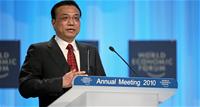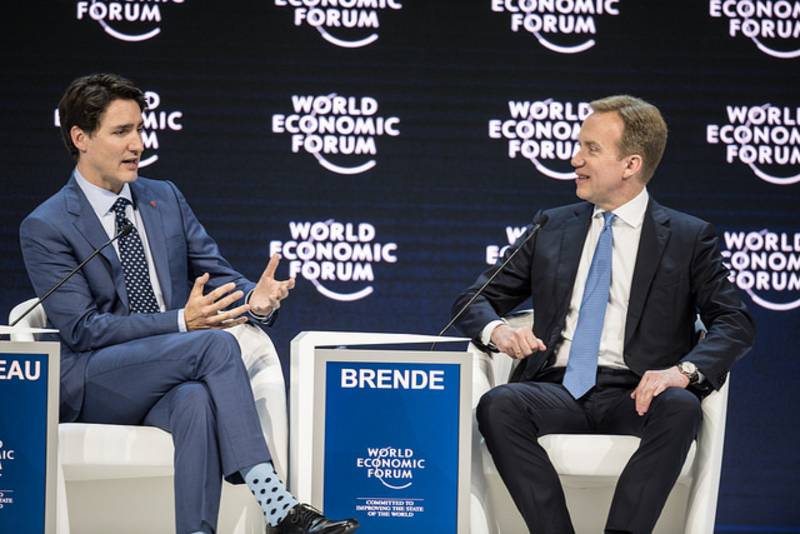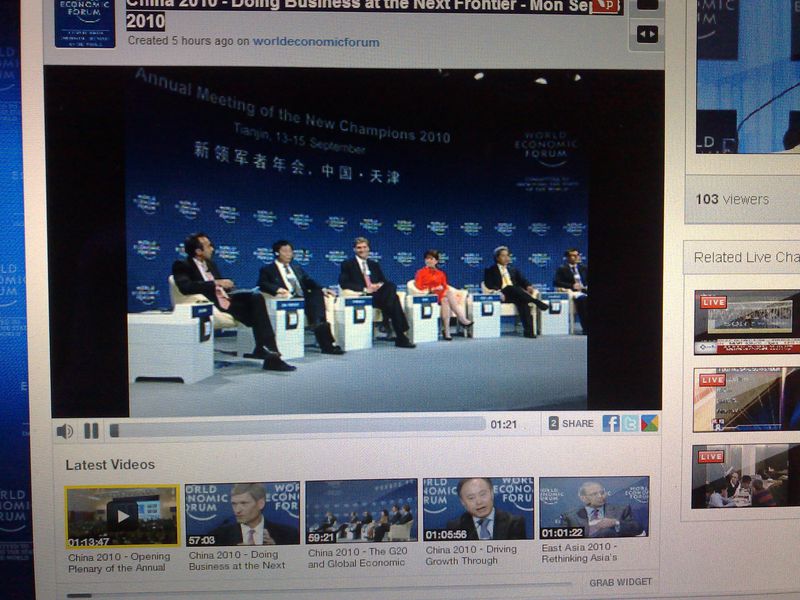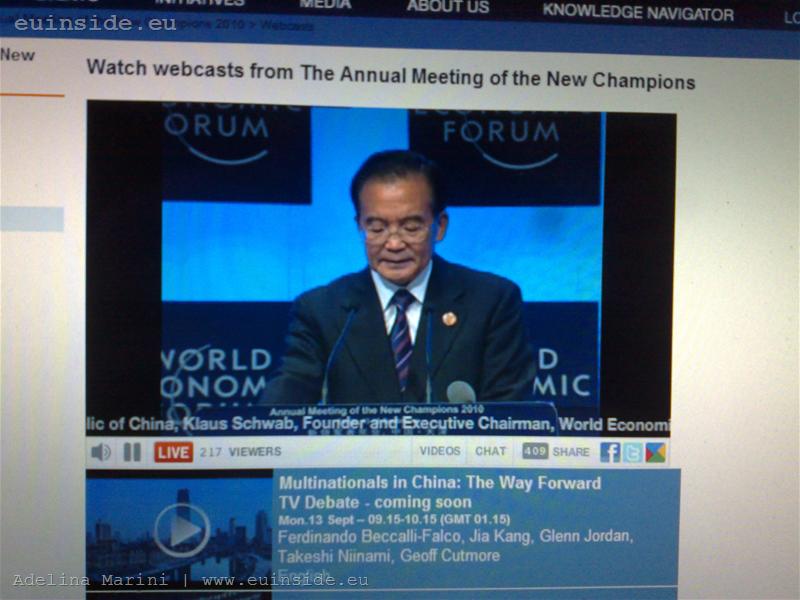How old is China?
euinside, January 29, 2010
 One of the most expected speeched at the World economic forum (WEF) in Davos was that of the Chinese vice premier Li Kiqiang. In a little over than 30 minutes Li made an overall review of the economic indicators of China, which were emphasized by the founder of the WEF Klaus Schwab - 8.7% economic growth for 2009, large part of which is due to an increase of domestic demand with 6 percentage points. Mr Li unequivocally stated that domestic demand indeed would continue to be the driving force for Chinese economic growth and this would be stimulated. This was also the reason for the drop of the trade surplus of the country by about $100 bn since 2008.
One of the most expected speeched at the World economic forum (WEF) in Davos was that of the Chinese vice premier Li Kiqiang. In a little over than 30 minutes Li made an overall review of the economic indicators of China, which were emphasized by the founder of the WEF Klaus Schwab - 8.7% economic growth for 2009, large part of which is due to an increase of domestic demand with 6 percentage points. Mr Li unequivocally stated that domestic demand indeed would continue to be the driving force for Chinese economic growth and this would be stimulated. This was also the reason for the drop of the trade surplus of the country by about $100 bn since 2008.
Li Kiqiang underlined however that in spite that these good indicators position China among the best performing nations in the world, the country with over 1 bn people population is far behind 100 other states with regard to gross national income per capita. China still needs strong economic growth to overcome poverty, especially in rural areas. This can be achieved through pro active fiscal policy and modest monetary policy. The key, according to the Chinese vice premier, is striking a balance between sound and sustainable economic growth, readjustment of economic structure and appropriate governance of inflationary risks.
Probably responding to the large criticism of the international community that China's economic growth is harming the environment, especially after the controversial results from the climate change conference in Copenhagen, Mr Li talked intensively about the efforts of the Chinese government to continue its focus on energy efficiency, carbon emissions reduction and investments in technologies because, aside from contribution for the environment, such an approach will also help creation of jobs and will stimulate economic growth. On this and the economic visions of the country Li Kiqiang outlined 5 proposals for the international community:
- To work together for tackling the crisis. "The storm is not over yet and we should continue to work together like passengers in a boat. In a globalised world the economies of all countries are interdependent. Policies of a nation can have a significant impact on others. Unless we reach global recovery we can't talk about national recovery", the Chinese vice premier explained;
- A more open market because this is the only way to achieve progress in response to the crisis. "Trade protectionist practices will only slow down recovery and will harm the interests of the states that impose them themselves. The lesson we've learned from the Great Depression of the 30-ies is a perfect example". According to Li, part of this proposal is the fast conclusion of the trade negotiations in the Doha Round as well as all commitments made so far to be translated into real actions;
- The third proposal of China is a pursuit for a balanced development of the world;
- The fourth proposal again includes the words "together" and "jointly" in the fight with global  challenges, one of which Li defined as climate change. He mentioned nothing about a future climate agreement as the expectations of most participants in Copenhagen are. Instead, Li Kiqiang emphasized on the need of accelerating the negotiations on the Bali roadmap (2007), based upon common but differentiated responsibilities. He also called on abiding to the principles of the Kyoto Protocol. In the end the Chinese vice premier concluded assuring that the government in Beijing would continue playing active and constructive role in international cooperation regarding climate change;
challenges, one of which Li defined as climate change. He mentioned nothing about a future climate agreement as the expectations of most participants in Copenhagen are. Instead, Li Kiqiang emphasized on the need of accelerating the negotiations on the Bali roadmap (2007), based upon common but differentiated responsibilities. He also called on abiding to the principles of the Kyoto Protocol. In the end the Chinese vice premier concluded assuring that the government in Beijing would continue playing active and constructive role in international cooperation regarding climate change;
With global governance is related the fifth Chinese proposal. As the largest developing nation and an emerging market, China insists global governance to reflect the changes in the political and economic landscape of the world. This means equal participation of developing nations in international organisations and institutions. The primary role in international matters of the UN and its agencies to be kept, as well as that of the G20. And regarding financial governance, Li called for learning the lessons from the crisis and for a reform of international financial institutions as well as tightening of global financial regulation. China also insists for the creation of regional financial assistance mechanisms so as to guarantee financial stability and economic development of the world.
The speech of the Chinese vice premier again showed how differently developing and developed countries perceive each other. It also showed that the developing countries, especially China, are fully aware of the global agenda but the national is a priority. In this regard the first introductory sentence of Li Kiqiang in Davos was very interesting regarding the 40th anniversary of the WEF: "2000 years ago the Chinese sage Confucius had said that when someone completes 40 years he stops suffering from perplexities and gets mature, starts to have a more open view and be more open". The question is how old is China then?
 Justine Trudeau | © WEF
Justine Trudeau | © WEF | © euinside
| © euinside | © euinside
| © euinside